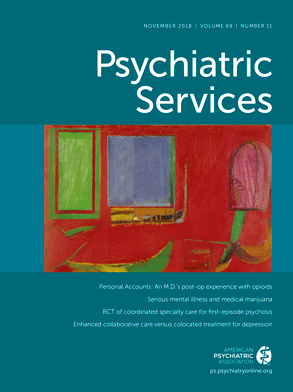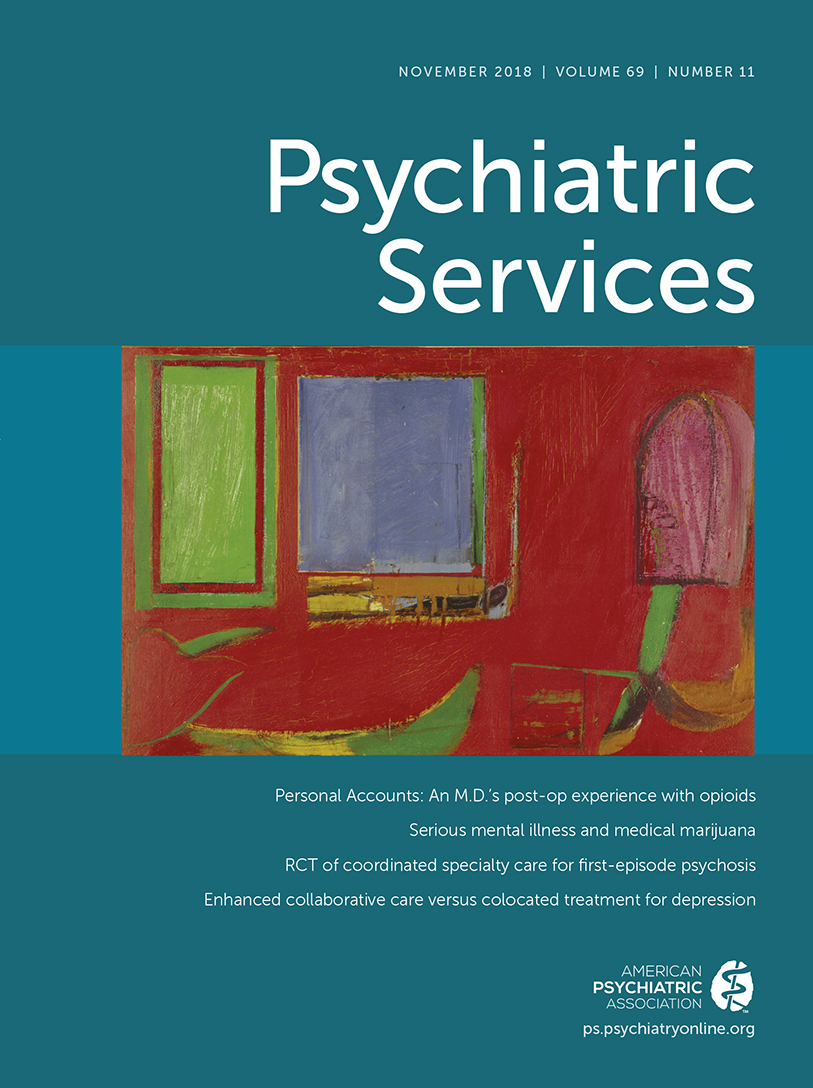Racial-ethnic disparities in health outcomes are widely documented. In this issue, Oluwoye and colleagues report on racial-ethnic disparities in outcomes following first-episode psychosis (FEP) in the Recovery After an Initial Schizophrenia Episode Early Treatment Program (RAISE-ETP). The results show that in standard care, the non-Hispanic black group had greater psychopathology throughout follow-up compared with non-Hispanic whites, a disparity that was absent in the group receiving multicomponent coordinated specialty care (CSC).
In another study in this issue, López and colleagues found low psychosis literacy among Latinos with a psychotic disorder and their family members. This may delay help seeking and mean longer duration of untreated psychosis and a more difficult route to appropriate care. Conceivably, young people lacking insight into their illness who live in communities with low levels of psychosis literacy risk more complex and compulsory trajectories into care and, as demonstrated in the RAISE study, more severe symptoms at baseline and—in standard care—at follow-up.
Moreover, the article by Oluwoye et al. shows that some racial-ethnic minority groups were less likely to receive evidence-based interventions such as family psychoeducation once in treatment. Although implementation of specialized services may reduce some disparities, these two studies demonstrate that reducing inequalities in mental health literacy and improving access to specialist care for psychosis remain substantial public mental health challenges.
More research is required to fully contextualize these findings, which remain bounded by the health care systems in which participants were recruited. For example, all community mental health centers (CMHCs) enrolled in the RAISE trial were required to have sufficient experience, commitment, and resourcing to offer an early treatment program for psychosis throughout the study period. Although such criteria provide a robust basis for experimental studies, a series of personal, social, economic, political, and methodological filters will ultimately determine selection into such a trial. This will have important consequences when such programs are deployed “in the wild,” with the goal of translating findings into an effective, coordinated, and coherent public mental health strategy. The original RAISE trial demonstrated beneficial outcomes for people enrolled in the CSC early treatment program over standard care. But, crucially, standard care was provided by CMHCs that had already demonstrated a minimum level of fidelity in providing specialist care for people with psychosis. At the population level, we do not know the proportion of the U.S. population lacking access to CMHCs that could implement RAISE-style treatment programs or the extent to which such access is equitably distributed. If some underserved communities are disadvantaged in ways that also increase psychosis risk—such as via increased exposure to deprivation, inequality, discrimination, or social isolation—then the level of unmet need for treatment in the population may be considerable.
Remarkably, in the United States, little is known about the burden and distribution of psychotic disorders in the population at large. Population-based studies are needed to address these gross deficits in knowledge if the United States is to achieve effective, widespread dissemination of RAISE-style early treatment programs, as originally envisioned by the trial’s investigators. In response, the National Institute of Mental Health has supported programs such as the Early Psychosis Intervention Network, which promises to build an informatics platform to better understand clinical high risk and FEP. Such investment needs to be coupled with efforts to accurately delineate the incidence of psychotic disorders. Here, the U.S. mental health system can learn from approaches taken in northern Europe, where evidence-based early treatment programs are underpinned by epidemiological data quantifying the incidence of psychotic disorders within and across populations. From this position, we could deploy early treatment programs for psychosis that are not only efficacious but also effective in targeting care to communities where need is greatest.

